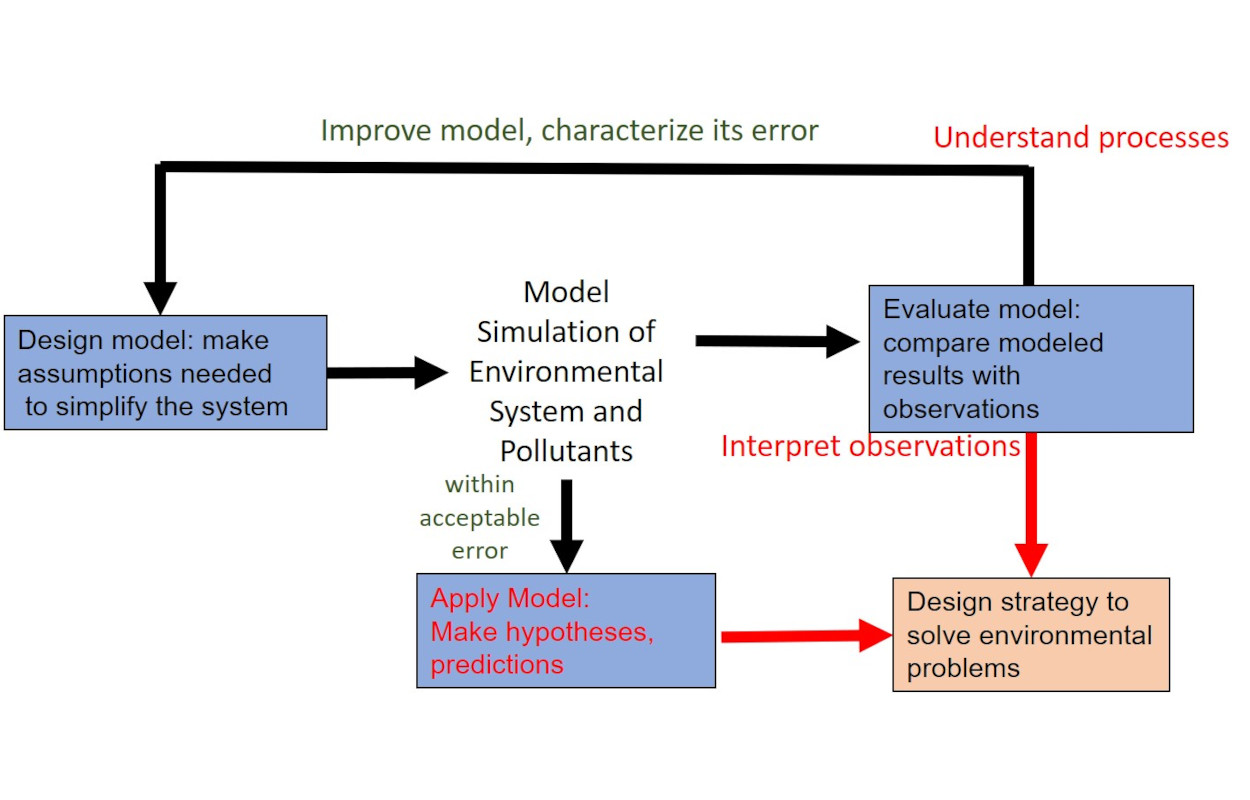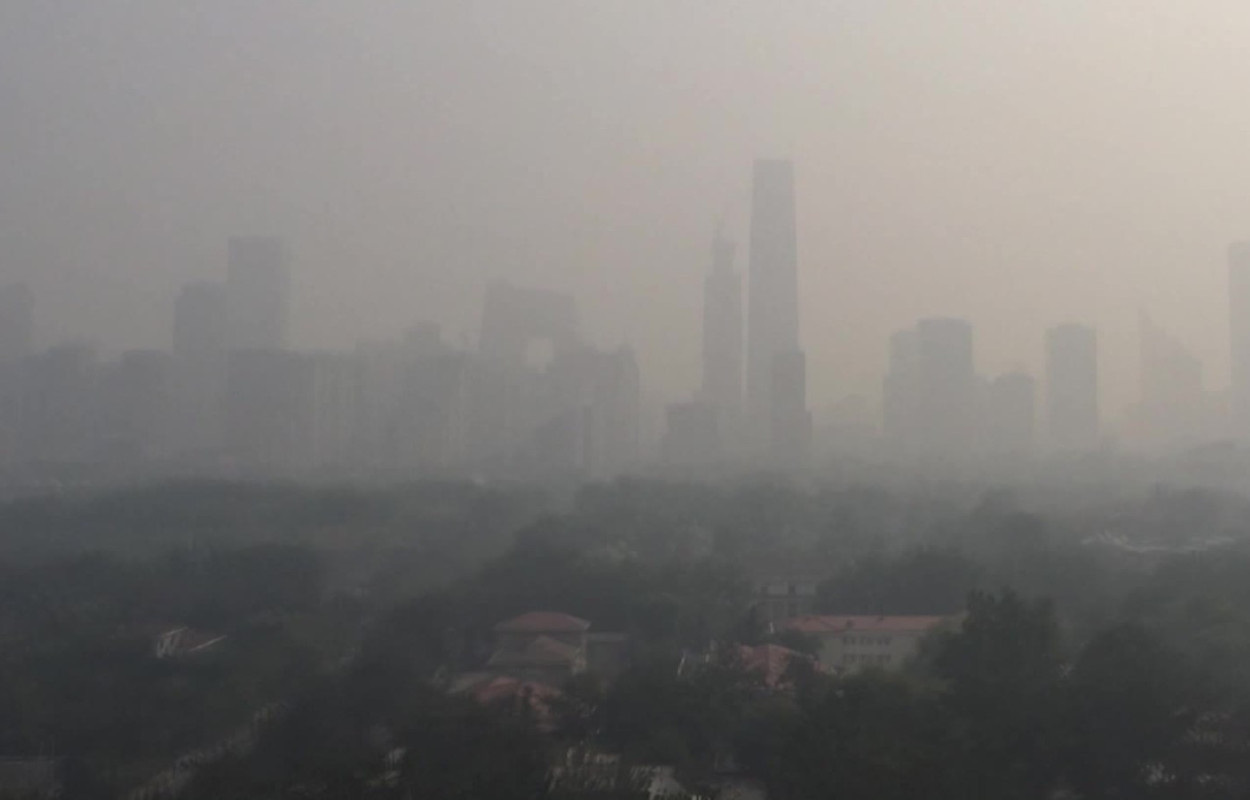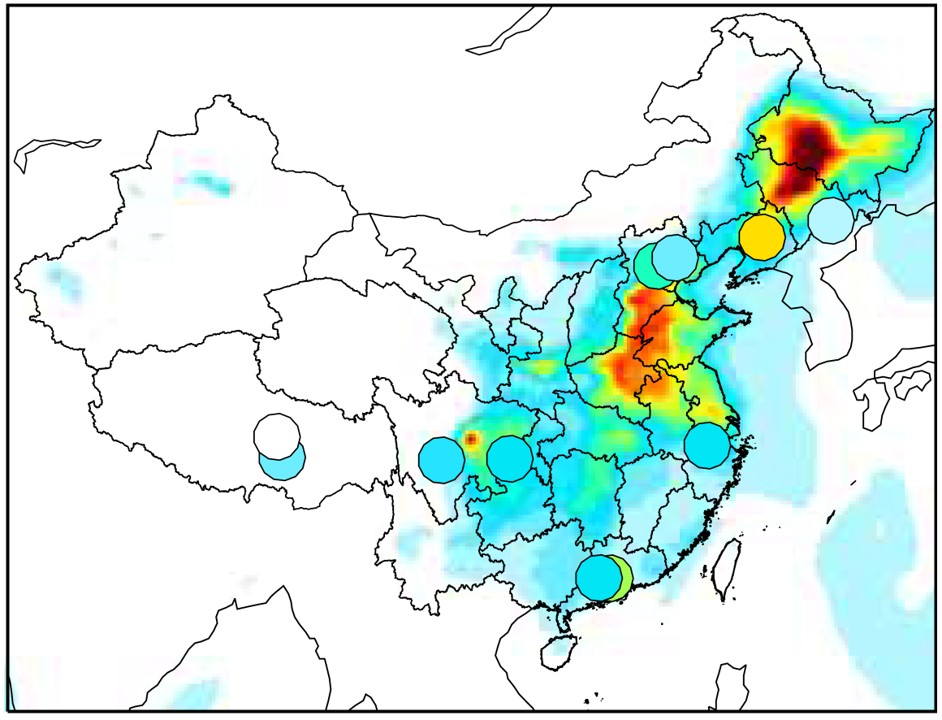Course catalogue and syllabus for School of Energy and Environment at City University of Hong Kong can be found here.
(undergraduate core, spring)

This course aims to instruct students to learn how environmental phenomena works as systems and how to use models to better understand the environmental system and to solve environmental problems. Students will learn basic concepts and strategies for building simple models, designing model experiments, and evaluating model results. Various environmental applications using modelling from a variety of disciplines (e.g. air and water) will also be introduced.
The course has both lectures and tutorials at computing lab. Major topics include: basic dynamics and kinetics; box model; trajectory model; numerical approaches; modeling atmospheric system; modeling surface water system; model uncertainty and evaluation; model experiment design.
(MSc and PhD elective, spring odd years)

This course aims to provide a working knowledge of air quality issues. It will emphasize on a multidisciplinary approach to investigating the emission sources, atmospheric chemistry and removal processes, meteorological phenomena and their impact on pollution at local to global scales. Regional and global issues such as acid rain, ozone depletion and air quality connections to climate change will also be discussed.
Key topics include: chemistry concepts; atmospheric composition; meteorology and transport; radiation and greenhouse effects; stratospheric chemsitry; tropospheric chemistry; ozone; aerosols and clouds; biogeochemical cycles; air pollution regulations and health effects.
(undergraduate elective, fall odd years)

Air quality models have become fundamental tools to analyze observations, understand relationships, test hypotheses, and project future evolution for air pollution. This course is aimed to provide insight into the methods used in air quality modelling. It will focus on both theory and practice, from the fundamental principles behind models to their applications in interpreting air pollution.
Key topics include: steady-state dispersion models; Lagrangian transport models; indoor air quality models; chemical transport models; model application and evaluation.
Also contributes to the air pollution and atmospheric change sections in SEE2201 Fundamentals of Environmental Engineering (undergraduate core, spring).